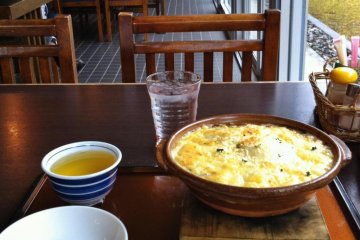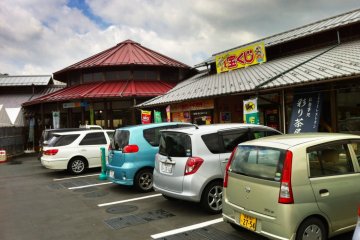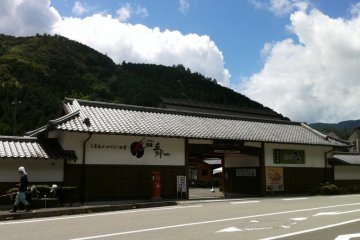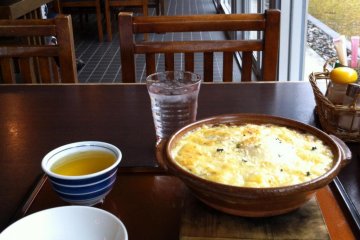Hiyoshi Yumesanchi is a Road Station with a restaurant, food stalls, restrooms, and a marketplace selling fresh, local produce.
Chances are that if you’re traveling by car in the southern part of Ehime, you’ll want to stop at some point to answer the sundry calls of nature. While the territory is certainly beautiful, there are few places where you can park easily and drop in without a long reconnaissance. Hiyoshi Yumesanchi on Route 320 however, is an obvious and convenient place for a break.
Road Stations are government-designated rest areas found along roads and highways in Japan. Besides providing places for travelers to rest, they’re also intended to promote local tourism and trade. Shops sell local produce, snacks, souvenirs, and other goods. The local produce typically attracts local people too.
Hiyoshi is a wooded, mountainous area with produce which reflects this geography. Representative products are yuzu, a highly aromatic citrus used as a flavoring, chestnuts, game meat such as pheasant, deer and boar, and honey. Observant drivers may have noticed strange little boxes placed on embankments along the road. These are hives for honeybees, and you can buy the rich, strongly flavored honey from these hives at Yumesanchi.
Yumesanchi has a restaurant, Mori no Mado (Forest Window), which serves hearty, good value dishes with seasonal variations. Tall windows line one wall of the restaurant, affording views of the nearby mountains, hence the name. On a cold, rainy Saturday in January, I ordered the curry and rice baked with a soft egg and a topping of cheese. It arrived quickly and made a warming, satisfying lunch.
The souvenir shop offers a wide range of attractive local products, many of which are good for gifts, whether packaged food products, decorations, or items of practical use. One interesting item for those of a masochistic bent is iron geta, the traditional Japanese thong sandal normally made out of wood. The extremely heavy iron version are recommended to men and women for ‘shape up’ and ‘dieting’ (consult your physician first).
My eye was naturally drawn to the sake and shochu corner which features a number of unusual products including sake with pheasant extract, and shochu made of chestnuts which is most palatable.
There’s also a bakery here and covered area selling fresh fruit and vegetables, and a small selection of pre-cooked foods. Other stalls offer a range of ice cream made with local flavorings, and deep fried fish patties, an Ehime favorite. This range of options makes Yumesanchi a useful local shopping and eating stop for independent travelers staying in the area.














